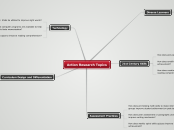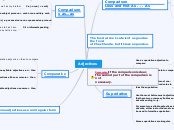door Wendy Chestnut 8 jaren geleden
135
RDG graphic organizer
Different types of reading assessments are vital in evaluating student comprehension and proficiency. Authentic assessments focus on real-world applications that are meaningful to students, fostering engagement and better retention of knowledge.









